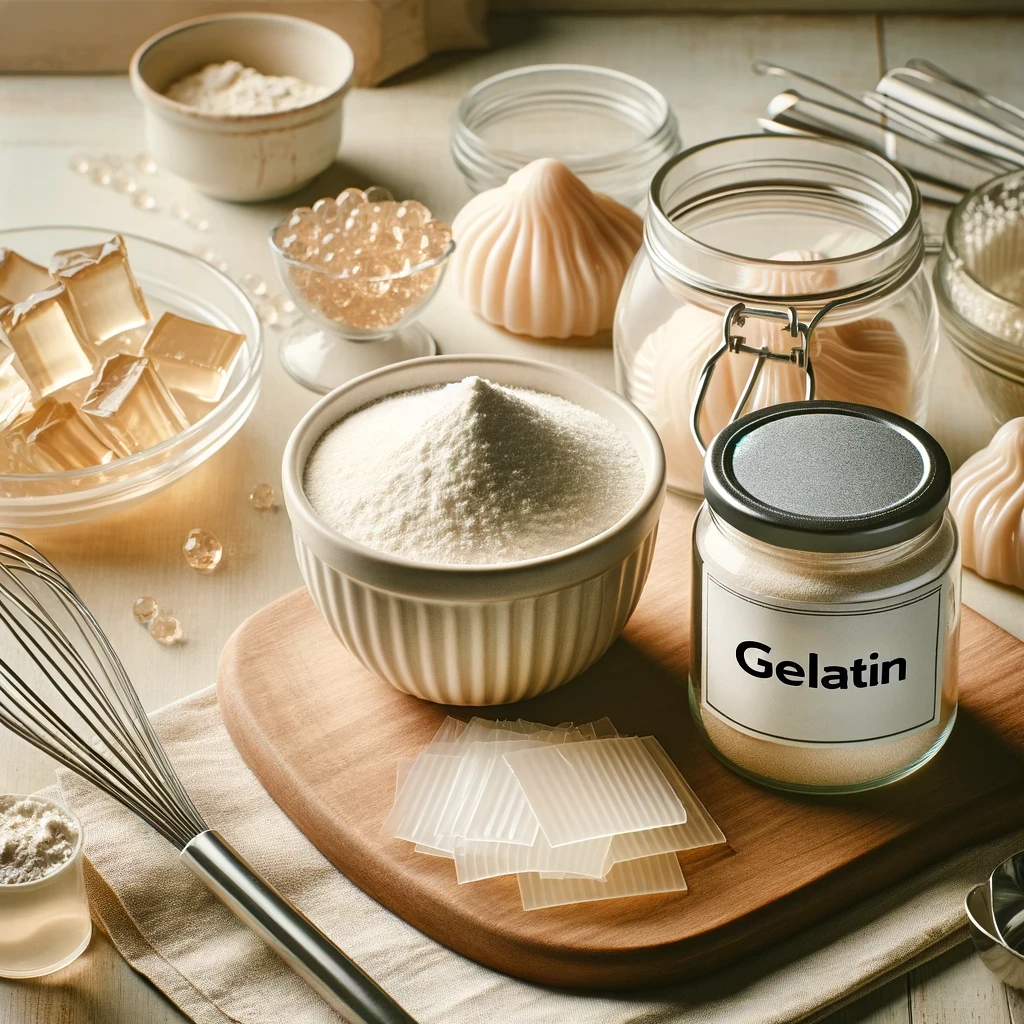reliable food sales
Gelatin
Gelatin
Couldn't load pickup availability
Gelatin is a versatile and widely used ingredient known for its ability to thicken, stabilize, and add a unique texture to a variety of dishes. Derived from collagen, gelatin is a translucent, flavorless substance that is essential in both culinary and confectionery applications.
What is Gelatin? Gelatin is a protein obtained by boiling the skin, bones, and connective tissues of animals, typically cows or pigs. This process extracts collagen, which is then dried and processed into sheets, granules, or powder form. Gelatin is prized for its gelling properties, which allow it to set liquids into a firm, jelly-like consistency.
Uses in Cooking and Baking:
- Gelling Agent: Gelatin is most commonly used as a gelling agent in desserts such as jellies, marshmallows, and panna cotta, providing a smooth, firm texture.
- Thickener: It acts as a thickener in various recipes, including mousses, custards, and creams, giving them a rich and creamy consistency.
- Stabilizer: Gelatin helps stabilize whipped cream, preventing it from deflating, and is also used to stabilize emulsions and foams in both sweet and savory dishes.
- Confectionery: It is a key ingredient in gummy candies and other chewy sweets, contributing to their unique texture.
- Clarifying Agent: In the beverage industry, gelatin is used to clarify wines, beers, and juices, helping to remove impurities and sediments.
Health Benefits: Gelatin offers several health benefits, making it a valuable addition to a balanced diet:
- Protein Source: Gelatin is a high-protein food, providing essential amino acids that support muscle growth and repair.
- Joint Health: The collagen in gelatin may help support joint health and reduce symptoms of osteoarthritis.
- Digestive Aid: Gelatin can support digestive health by improving the lining of the digestive tract and aiding in nutrient absorption.
- Skin, Hair, and Nail Health: The collagen content in gelatin can promote healthier skin, hair, and nails.
How to Use: To use gelatin, it must be bloomed in cold water or another liquid to rehydrate and soften it. After blooming, it is typically dissolved in hot liquid to activate its gelling properties. The amount needed varies depending on the desired firmness, but a common ratio is 1 tablespoon of powdered gelatin to 2 cups of liquid.
Storage: Gelatin should be stored in an airtight container in a cool, dry place to maintain its effectiveness and prevent moisture absorption.
Gelatin is an essential ingredient in many culinary applications, from desserts and confectionery to savory dishes and beverages. Its ability to transform liquids into gels, thicken, and stabilize makes it a valuable tool in the kitchen, offering both functional and health benefits.
Share



